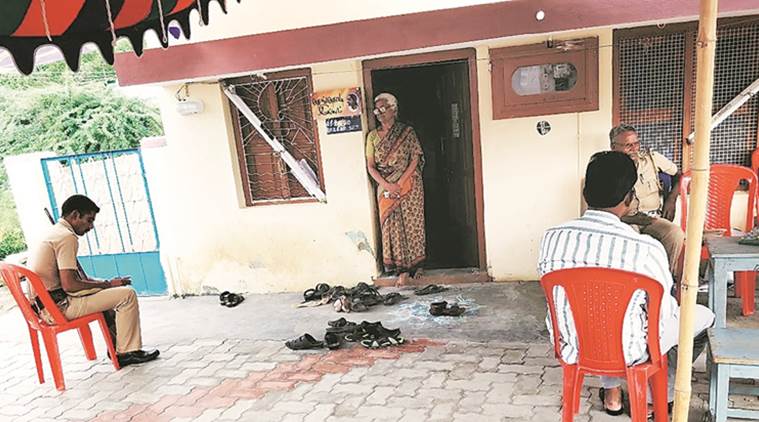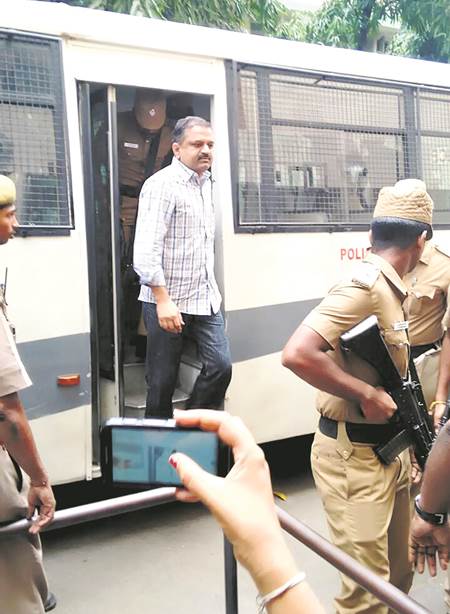TNN | Nov 15, 2017, 01.44 AM IST
By Amit Anand Choudhary
NEW DELHI: Almost 18 years after Perarivalan was convicted as a plotter in the Rajiv Gandhi assassination case, a former CBI officer involved in the investigation has told the Supreme Court that the convict did not know of the plan to kill the former PM. V Thiagarajan also said Perarivalan’s statement about not being aware of the plot was not recorded in his confession,which was heavily relied upon by courts to convict him, as this would have favoured the defendant. Now, Thiagarajan has filed an affidavit in the SC and explained the reason for the “omission”, and virtually supported Perarivalan’s plea for remission of the sentence. “It is humbly stated that accused Perarivalan’s statement that he was totally in the dark as to the purpose for which the batteries were purchased was not recorded by me, because it would be an exculpatory statement and hence the whole purpose of recording the confessional statement would be lost.
 |
| A.G. Perarivalan |
Further, I did not deem it fit to record this exculpatory statement because the investigation regarding the bomb was pending at the time of recording the confessional statement,” he said in his affidavit. In an interview with TOI in 2013, Thiagarajan had said Perarivalan, in his confession before him, admitted that he purchased the batteries. “But he said he did not know the batteries he bought would be used to make the bomb. As an investigator, it put me in a dilemma. It wouldn’t have qualified as a confession statement without his admission of being part of the conspiracy. There I omitted apart of his statement and added my interpretation. I regret it,” he said, adding that if he had a chance, he would have corrected the mistake.
Thiagarajan justified his decision to file the affidavit, saying he had grown concerned at Perarivalan languishing in jail with declining prospects of release. The 1981-batch IPS officer had recorded the confessional statements of Perarivalan alias Arivu in 1991, wherein he was said to have admitted that he had purchased two batteries and handed them to Sivarasan — the leader of the assassination squad — to be used to detonate the bombs to kill the former PM. Perarivalan also stated he was not aware of the purpose for which the batteries were bought and was in the dark about the assassination plan. . “We were not sure at that time about the part played by Perarivalan in the conspiracy but as the investigation progressed there was confirmation about the ignorance of the said accused relating to conspiracy... Hence a mere fact of providing the nine-volt battery in the first week of May 1991 would not make him privy and party to the said conspiracy.
This internal evidence also makes it clear that the accused was not taken into confidence about the assassination,” Thiagarajan said. The officer’s statements is contradictory to the SC verdict, which had, in 1998, held “we therefore reach the conclusion that A18 (Arivu) was actively involved in the criminal conspiracy to assassinate Rajiv Gandhi”. Perarivalam was about 20 when arrested in mid-1991. He was initially awarded the death penalty, but it was commuted to life imprisonment.
Source: https://timesofindia.indiatimes.com/india/man-jailed-in-rajiv-gandhi-killing-as-i-hid-facts-says-ex-cbi-officer/articleshowprint/61650838.cms (Accessed 23 December 2018)


